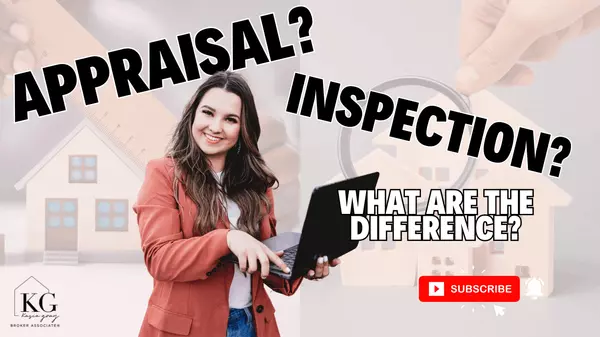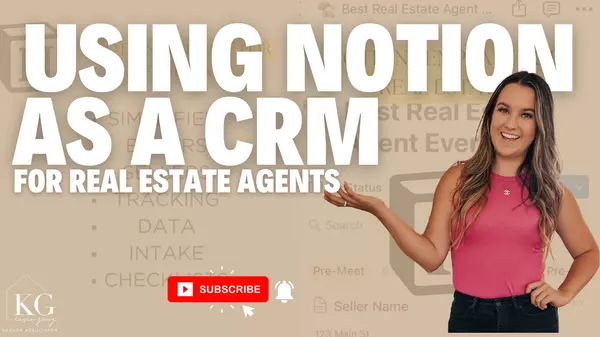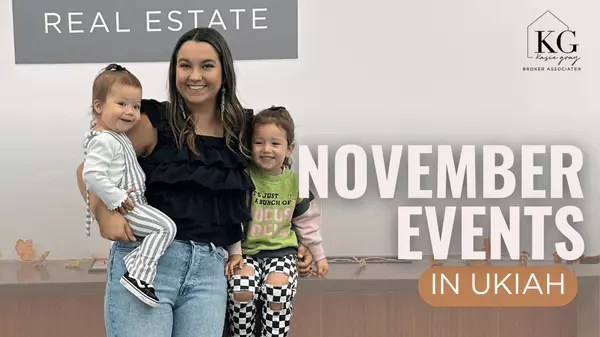THE GRAY METHOD
Your guide to the part of real estate that isn't very black and white. Buying your first home and upsizing into your dream home can feel very overwhleming. When you have endless options for how to navigate the process look no further than the expert.
FREE GUIDE
LISTING PREP GUIDE
Thinking about selling your home?Most wait until they are ready. My clients contact me months in advanced so I can give them a free consultation on steps to make to make sure you get the most value for your home. Get my free step by step guide here
FREE GUIDE
RELOCATION GUIDE
Looking to make a move? Here is my free guide that gives you the complete run down of the ins and outs of Ukiah. everything from my favorite meals, favorite parks and things I love to do in my free time. Take it all from me, a girl who has lived here my whole life!
FREE GUIDE

House Hunting Hacks: 8 Essential Tips for Buying Your Dream Home! | Ukiah REAL ESTATE | Realtor MOM
Having a realtor as your buyer's agent is helpful in countless ways and makes the process of buying a house much smoother. So, if you want eight tips on things to keep in mind while buying a house, stay tuned because we're about to get into it right now. Hi, my name is Kasie Gray. I'm a realtor, a broker associate, and a mom, and I love helping people love where they live. Today, I'm going to talk to you as a potential home buyer. Whether you currently own your home and looking to size up or on your search for the first home you will ever purchase, here are eight things to keep in mind when you are on the search so that you don't have buyer's remorse and you love where you live. 1. Neighborhood: The neighborhood is the most important thing. They always say to buy the worst house in the best neighborhood because one thing you cannot change about the property is its location. You can always change fixtures, finishes, even walls, but the neighborhood is something that you cannot change. So, that is something that you need to look into your lifestyle and figure out what that looks like for you. 2. Floor Plan: This one is so important. Take a look at the floor plan and how that's going to work for your day-to-day life. Whether it's a two-story house, if you are downsizing, or looking for a single-level house if you have multiple kids. What does that room layout look like? Is there room to grow? Are you going to be comfortable in the space for the next 5 to 10 years? 3. Major Home Systems: Things like roof, HVAC, electrical, and plumbing. These can add up and they're not pretty aesthetically fun things you get to spend money on. Having to replace the windows is not going to revamp the whole space; it's going to make your bills more cost-effective. If HVAC is going to go out soon, do you have $10,000 set aside for that? 4. Exterior: Pay attention to the siding, roof, and curb appeal. What are the maintenance needs? Is it grass or rock? 5. Natural Light: Open the curtains and see what that looks like at different times of the day. 6. Damage: Keep in mind things that have been worn and not well taken care of. 7. Garage: Does it fit your cars and storage needs? Is it insulated? 8. Renovation Needs: What is it that you're going to want to change? Is it aesthetics or structural? If you are ready to start your journey on your home buyer search, I will link my free home buyer guide down below. It is completely free and allows you to understand the process from questions to ask a lender to about home inspections, home searching, and more. Thank you so much for watching, and I will see you in the next video.

Appraisal vs. Inspection: Understanding Their Vital Role in Real Estate | Real Estate Investing
Today we're talking about what the difference between an appraisal and an inspection is. Two different things happen when you buy a house, and it's confusing, so I'm going to break it down. Hi, my name is Kasie Gray. I am a realtor, a mother, and a broker associate. I'm supposed to say that before mother, but technically, I should say mother first because mother comes first, family comes first, family, God, my country. Just kidding, anywho. I do a lot of things, but one thing I love to do is help you love where you live. So if you're unhappy in your life, you give me a call, you watch my YouTube, you do whatever you need to do. But anyways, if you're unhappy and you're going to buy a house and you have to understand the difference between an appraisal and an inspection, here is the video for you. I'll stop talking now. Well, I'll keep talking, but I'll keep talking about what you want to hear, not about what I want to do. Hey, get into it. So an inspection is something that happens voluntarily by a buyer or a seller. A seller can sometimes do the inspections themselves so that they have them on file. And what that does for you as a buyer is make you aware of all of the findings before you write an offer. So an inspection is a voluntary report that you can get. You can get an inspection on anything. The most common ones are a home inspection and a pest inspection. And what those do, a home inspection goes through all of the functions. They look at everything from electricity to plumbing, to under the house, on top of the house, in the attic, in the bedrooms, in the oven, in the dishwasher, under the sink, on top of the sink. They look at all of the necessary functions to understand the condition of the home. And a lot of the time, they'll find a lot of things that even a homeowner who lives there every single day isn't aware of. And those can run about $400 to $500. A pest and fungus inspection does kind of more structural inspecting to make sure that there are no beetles. And if there are beetles, what kind and how to get rid of them? And if there's dry rot, if there's mold, you know, these kinds of things to just make you aware of the condition of the structural items. And then, like I said, you can get an inspection on anything. So if you want to get an inspection on the Sewer Lateral, on the septic, on the well, on the pool, on the AC, on the heating, on the dishwasher, on literally anything that you want to get inspected, you just call someone and you say, "Hey, can you inspect this for me?" It's going to cost you money, but you can get it inspected. So who pays for the inspections and when? So there are a couple of ways it can go. A seller can provide the inspections before you write an offer and pay for themselves if that's what they decide to do. And what that does is help a buyer understand the overall condition of the property. If you write an offer on a house and there are no inspections, pretty customarily, it is on the buyer to pay for them. You can most definitely write into your offer that the seller can pay for the inspection. That is something that the seller could agree to or not agree to. That is up to them but is most definitely something that you can offer that the sellers pay for them and how much and what companies and all of that. And then otherwise, if the sellers don't agree to that, the buyer is typically on the hook. And if you decide to walk away, the seller doesn't usually typically reimburse those. If you want to write that into your contract, you can. Once a report has been done, the seller does need to disclose that. So all reports done on the property do need to be provided to the seller for them to use in the future. An appraisal is something that can be done by a seller just to understand the value of their home. But if you are buying a house with a loan, you will need to get an appraisal ordered by your lender. And the lender sends that out to an appraisal management company. The appraisal management company posts that, and then appraisers are independent contractors, and they will then take on the files that they deem that they would like to work with. And so that is typically something that a buyer pays for. If you want to get a credit towards your closing cost, it can be covered through that. Appraisals can be anywhere from $500 to $11,000. It just depends on the house, the timeline, and all of those things. The appraisal that is ordered by your lender can only be used for your loans. So if your escrow doesn't work out, the sellers cannot use that appraisal on a different transaction. That appraisal is just for your house. And appraisals are great, and the purpose of them is to ensure that you as a seller and the buyer as a buyer are not defrauding this system and inflating the value for what it's not worth. And then it also ensures that the bank, if for some reason you move into this house and default and don't make any payments, that they could then put it back on the market and sell it for what you got a loan on it for. And that is the reason for the appraisal. You know, back before 2008, there were few appraisal conditions, and there were a lot of mishappenings and that is why so strict and Appraisal typically doesn't say what the functions are, how they work, those things. They just determine the value, look at the condition, pretty much like look and don't touch. The two things that they can do is call out reasons for health and safety issues. So it depends on the type of loan that you're getting and how strict those health and safety issues are going to be. If you're getting an FHA loan, they could say anything from chipping paint is a health and safety issue to railings to fence over the pool. You know, there's lots of different things. And we don't know how the appraisal is going to go until it goes. And then if there are issues, we deal with them. So that's kind of a quick rundown of appraisal versus inspection. I If you have any questions, you can refer to my inspection guide - https://kasie.realtor/inspections, which goes in-depth into what the inspections are and how they work. And then if you want more info on appraisals, I think I have a video up. But as always, get a realtor who explains things to you and can help you understand what's going on and when it's going on. So thank you so much for watching. I'm Kasie Gray. You heard all that. Don't forget to subscribe and like. Have a great day!LINKS TO YOUR FREE GUIDE: 1. Get your HOME INSPECTION GUIDE - www.kasie.realtor/inspections 2. Wanna know about APPRAISAL? Watch this video now: https://www.youtube.com/watch?v=DPOmHqRJzMQ 3. Is a Home Inspection necessary? https://www.youtube.com/watch?v=gHOzHpM4cfA

Boost Your Real Estate Business with Notion CRM: Tips & Tricks
Hi, I'm Kasie Gray, a Realtor, and I love helping other Realtors succeed in their businesses. I offer various templates for sale on my website and Etsy shop. One of these templates is designed for Notion, a powerful tool that can seem overwhelming due to its many options. This Notion template is similar to my Trello board template, but Notion offers more depth and capabilities. While my Trello template is still available, I'm excited to introduce this Notion template, which is easy to set up and ready for you to start managing your client relationships. As a real estate agent, tracking your clients is crucial. This Notion template is specifically designed for this purpose. It allows you to organize your clients based on their status, making it easier to manage your workflow. You can see the available statuses, such as 'pre-meet,' 'pre-list,' 'live on the MLS,' 'buyer,' 'under contract,' and 'closed.' Each client has a card with fields to input their information, including the seller's or buyer's name, account owner (useful for teams), status, priority, mailing address, property address, pre-approval amount, expected value, contact information, initial seller consult date, client type (buyer or seller), pre-approval status, lender info, and lead source. You can even customize additional questions. The template includes checklists for tasks during the contract, escrow, and when the property is live on the MLS. You can adapt these checklists to match your specific processes. You can easily move cards between statuses as your clients progress through the real estate transaction. Notion's powerful search and filter capabilities allow you to find information quickly, helping you stay organized. If you have any questions or need assistance setting up this template in Notion, please don't hesitate to reach out. This template is similar to the one I offered for Trello, which received positive feedback from over 200 satisfied customers. Thank you for watching this video. I'm a Realtor in Northern California, just a few hours north of San Francisco. If you have any referrals, please send them my way. Feel free to reach out if you have any questions or need assistance!
Categories
Recent Posts










